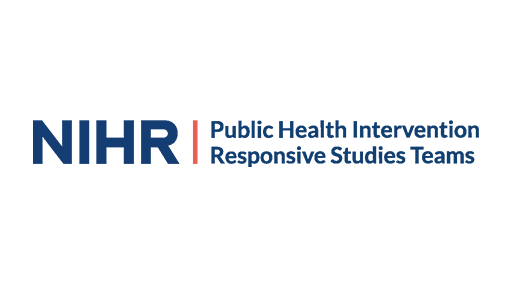Public Health and Applied Behaviour Change Laboratory (PHAB Lab)
Researchers at the PHAB lab are experts in the application of behaviour change science to real-world public health challenges. Our expertise spans a diverse range of public health issues including but not limited to obesity, diet, and physical activity; infant feeding and breastfeeding; condom use and sexual health; smoking cessation; and gender-based violence.
We have spent our careers working in and with public health departments across the UK including with colleagues at the Office for Health Improvement and Disparities and the public health agencies of the devolved nations.
Our methodological expertise includes
- The systematic development of interventions using theory and evidence
- Co-production of interventions with a wide range of stakeholders including those for whom the intervention is intended
- Systematic review and evidence synthesis including meta-analysis
- A broad range of evaluation methods including randomised controlled trials (RCTs), quasi-experimental designs, realist evaluation, and mixed methods studies
- Recruitment of participants to large-scale evaluation studies
Please feel free to contact us in relation to collaboration, consultation or supervision.
Case studies
Active Herts: A community-based physical activity programme
Background
The public health team at a Hertfordshire County Council wanted to help four communities living with high levels of deprivation to address their health and wellbeing concerns including cardiovascular disease (CVD) risk (e.g., diabetes, hypertension) and mental wellbeing. Funding for a £1m+ community physical activity programme for CVD and mental health was established but there was limited behaviour change theory in the design, training, or delivery. Dr Neil Howlett and his PhD team were ideally placed to provide academic support.
What did the researcher do?
Dr Neil Howlett and colleagues conducted a review of physical activity interventions for inactive adults that highlighted which behaviour change techniques were most effective to change long-term physical activity levels. Alongside the findings from the review, we analysed the COM-B model of behaviour, which suggests that behaviour results from an individual having sufficient Capability, Opportunity, and Motivation. The results indicated that the key drivers of physical activity were Capability (habits, action planning, and self-monitoring) and Motivation (intention, self-efficacy, and exercise self-identity). These combined findings informed the design of the Active Herts programme.

Reducing sexually transmitted infections (STIs) amongst young people
Background
Sexually transmitted infections (STIs) such as chlamydia are common amongst young people. Without treatment, they can cause serious health problems including infertility. Condoms are recommended to prevent STIs but young people often report not using them for penetrative sex. Face-to-face sexual health services are available for STI testing but more and more people are using STI testing websites and demand for this service is rising rapidly. Young people most at risk of STIs are using these sites but they do not offer much support or advice on how to prevent future infections.
What did the researchers do?
Together with young people and professionals, we developed a website called 'Wrapped'. Wrapped aims to reduce future STI diagnoses amongst users of web-based STI testing services by increasing their condom use. Users can order a free condom sample pack and carrier, access a free monthly condom ordering service, and watch videos that demonstrate condom use, give tips on communicating about condoms, and of real couples discussing and using condoms. What we want to know is whether Wrapped works to reduce STIs. To find this out, we need to run a type of experiment called a Randomised Controlled Trial (RCT). This research assessed whether it was possible to carry out this future RCT. Find out more about Wrapped.

Public Health Interventions Responsive Studies Team (PHIRST) Connect
Background
Professor Katherine Brown is Chief Investigator of a multi-institution collaborative PHIRST, funded by the National Institute for Health and Care Research (NIHR) via their Public Health Research funding stream. Professor Julia Jones from the Centre for Research in Public Health and Community Care is our co-Chief Investigator and leads the Public Involvement aspects of our work alongside our public-co-applicant. Dr Katie Newby and Dr Neil Howlett from PHAB lab are co-applicants and we have co-applicants from the University of Birmingham, the University of East Anglia and Queens University, Belfast.
PHIRST Connect was one of four teams originally commissioned in August 2020 to deliver robust, responsive evaluations of real-world public health services and interventions in collaboration with public health colleagues and their partners. Two more PHIRST teams were set up in March 2022 and a further two began in March 2024. The Department of Health and Social Care and the NIHR have committed to continuing to fund PHIRSTs to provide valuable evidence in support of a preventative health agenda. Find out more about PHIRSTs.
PHIRST funding runs in five year cycles, and we are funded to deliver ten evaluations from August 2020 to July 2025 with the option to bid to retain our funding for a further five-year cycle in 2024.
